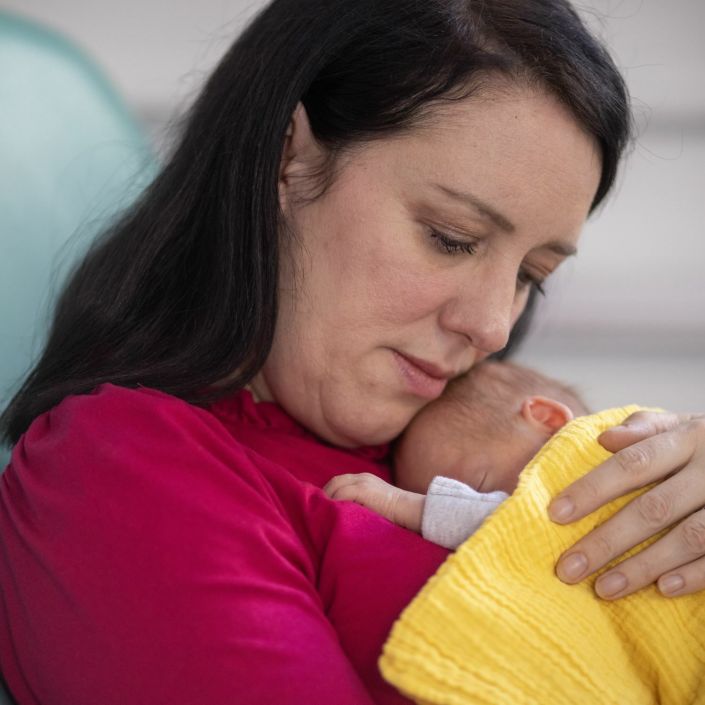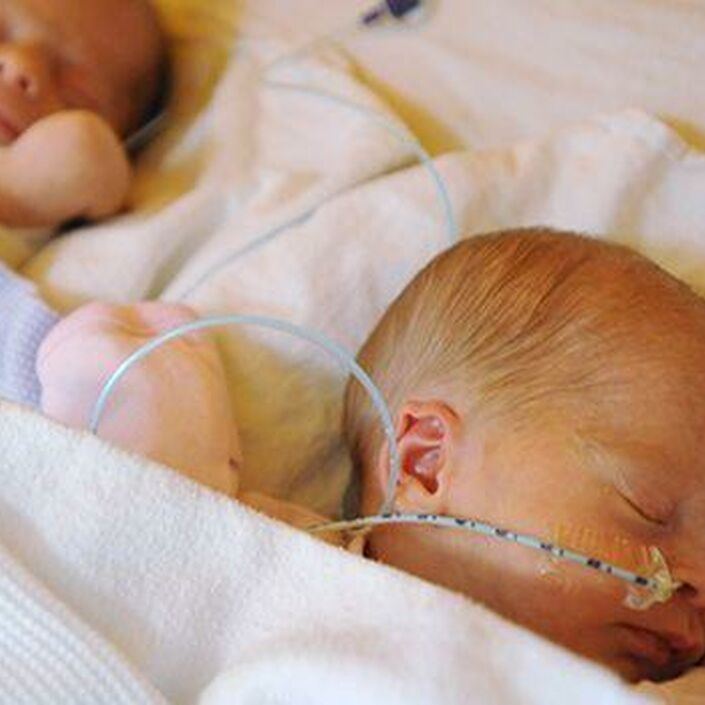How do I know if my child is vulnerable?
We know that children with some conditions such as chronic lung disease (CLD) have a higher risk of developing other types of infection that can cause problems in the lungs, sinuses, throat or airways (respiratory infection). This means that some children and babies may have a higher risk of getting unwell with COVID-19.
At different times since March 2020, governments in the UK have recommended that some people who are clinically extremely vulnerable, should ‘shield’. This has meant that they should take extra precautions to protect themselves from COVID-19. This has included some children and babies born premature or sick.
You will have been informed if you or your child is on the shielded patient's list. Some people are considered at moderately higher risk of becoming seriously unwell. These people are defined as clinically vulnerable.
A large number of children who were on the shielding list at the beginning of the COVID-19 pandemic have been removed. This is because newer evidence and research has suggested that many children who were considered clinically extremely vulnerable should not be.
All children and young people who were considered clinically extremely vulnerable should have had a review by their GP or hospital clinician. If you are concerned about your child’s vulnerability, you should talk to your GP or another clinician, such as a member of the neonatal team if you have recently been discharged.
What should I do if my child is clinically extremely vulnerable?
Adults and children who are clinically extremely vulnerable are now able to follow the same guidance as the rest of the population. People in this group are advised to think particularly carefully about precautions they can continue to take. More information about this can be found in the guidance for people who are clinically extremely vulnerable.
It is possible that a very small number of children will be required to continue to take additional precautions in addition to this. If this applies to your child, your GP will let you know
Children can go to school, and adults are able to return to work unless they are asked to stay at home in their part of the country.
Find guidance and restrictions for different areas of the UK.
If you are concerned or not sure if your child is vulnerable, you should talk to your GP.
If you have more questions about what the latest guidance means for you and your family, email us at [email protected]
Should my child go to school/nursery if they are clinically extremely vulnerable?
If your child was on the shielding list, they can still go to school or nursery. You should tell your child’s school or nursery as normal if your child is unable to attend. You should talk to your school if you are worried about your child attending school or nursery, so that the staff are aware and can discuss your concerns.
If you live in England, The Department for Education (DfE) has a helpline for queries about education for parents and anyone who works in education. You can call 0800 046 8687, Monday to Friday 8am to 6pm. You can also email [email protected]
I am worried about my child who is clinically extremely vulnerable. What should I do?
We know that this is a difficult time for parents of babies and children who are clinically extremely vulnerable, who have been told that their child can follow the same guidance as the rest of the population. It may also be worrying if your child has been added or removed from the shielded patient's list. You may welcome this guidance, but you may also have concerns about your child’s health if they are vulnerable and this is okay.
If you are worried or have questions about your child’s vulnerability, you should speak to your GP or another healthcare professional. You could speak to a member of the team on the unit. Even if you have asked before, it is always okay to ask if you are unsure about something.
We understand that some children and parents may be anxious about attending school and educational settings. We recommend that any parents who are worried to talk to their child’s school if you are worried. You can also call the Department of Education helpline on 0800 046 8687 – 8am to 6pm (Monday to Friday) or 10am to 4pm (Saturday to Sunday).
You can also email us at [email protected] if you would like to talk to someone. If you have a baby on the unit or have recently left the unit, you can speak via video call to one of our Bliss Champion volunteers.
Other useful organisations
Acas have more information about staying safe at work, furlough and shielding during the COVID-19 pandemic. You can also call them on 0300 123 1100, Monday to Friday, 8am to 6pm.
Citizens Advice have more information about furlough, what to do if you are worried about working, and your rights at work.
Asthma + Lung UK has information about coronavirus for people with lung conditions.
Wellchild has specific information about coronavirus (COVID-19) for parents and carers of sick children.
The British Heart Foundation have information for people affected by heart or circulatory disease.
Working Families have more information about your work rights during COVID-19.
YoungMinds has more information about how to talk to your children about COVID-19.


